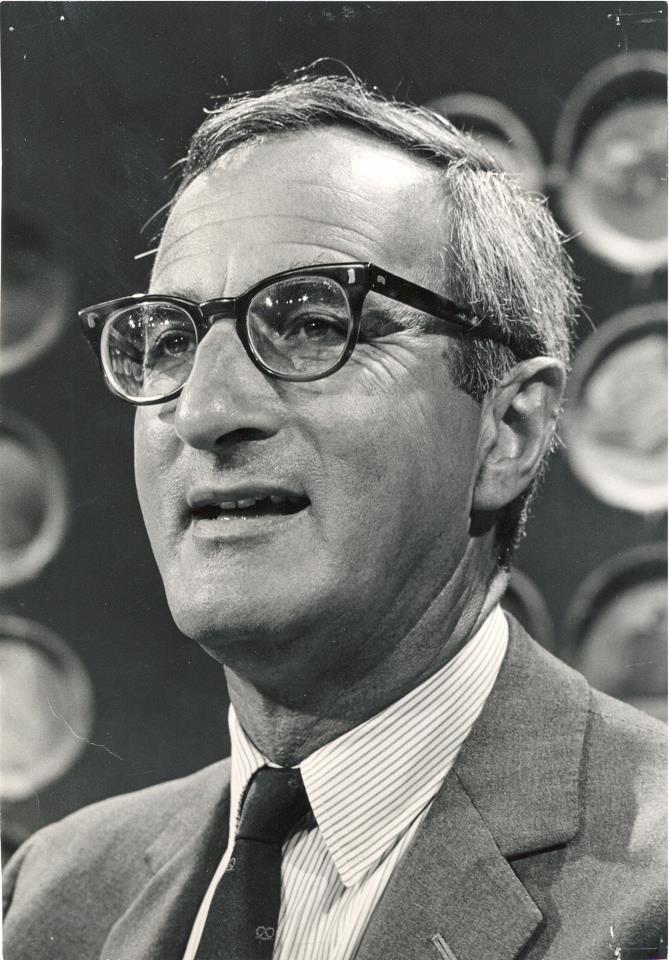SAN FRANCISCO—Roger Boas, a longtime San Francisco Board of Supervisor, mayoral candidate and the city’s chief administrative officer, whose 25 years in public service ended in scandal, died on February 10. He was 95.
Boas was a businessman who ran an auto dealership before entering into the field of politics in 1962 when he landed a seat on the San Francisco Board of Supervisors. Boas remained on the board for 10 years and earned a reputation as a liberal environmentalist. One of his biggest impacts on the city was in 1977 when Mayor George Moscone appointed him the city’s sixth chief administrative officer.
Boas applied his business approach to government, replacing longtime civil servants with professional managers from the private sector. He oversaw construction of massive projects, including a controversial $1 billion system to treat San Francisco’s wastewater to meet the latest pollution standards.
Boas sped the construction of the Moscone Convention Center at the Yerba Buena Center, a project that had been delayed for years due to lawsuits, a demand for more environmental studies and cost overruns. Boas encountered many of the same problems, but finished the project, opening the center in December 1981, making San Francisco a magnet for large conventions.
After 10 years as city administrator, Boas ran for mayor of San Francisco in 1987, campaigning as a no-nonsense, hard-nosed businessman who was “tough enough to keep this city great.”
Boas was never elected, ending with the third most votes of 11 candidates and losing to Assemblyman Art Agnos.
Boas was born in 1921, the only child of a Republican businessman who started one of the most successful car dealerships in California, while his mother was a Roosevelt Democrat. He attended Galileo High School and Stanford University. The day after his graduation from Stanford in 1942, he enlisted in the Army.
Boas spent three and a half years fighting during World War II in Europe under General George Patton. He directed artillery and mortar fire and was one of the first soldiers to enter a concentration camp at the end of the war. He was awarded the Silver Star for gallantry in action and a Bronze Star for heroism.
“The war has changed me in ways that it will take the better part of my life to understand, let alone make peace with,” Boas wrote in the prologue to “Battle Rattle: A Last Memoir of World War II,” his 2015 account of his years in the war.
When the war ended, Boas went to work at his father’s San Francisco Pontiac dealership, Boas Motors. He eventually took over ownership of the company in 1965.
In 1955, Boas hosted a civic affairs show on the public television station KQED called, “Profile Bay Area.” Capitalizing on the name recognition he earned through that program and began his political career. As a supervisor, he was best known for promoting the nascent Bay Area Rapid Transit system and fighting against freeways and high-rises.
In 1963, he debuted a weekly public television program called “World Press,” that featured discussions of national and international news. The program became nationally syndicated and was carried on 185 stations.
Boas resigned from the SF Board of Supervisors a few months after losing a 1969 race for Congress. He didn’t return to public office until 1977, when he became city administrator.
After his unsuccessful bid for mayor in 1987, Boas was identified as a patron of a brothel that offered sex with underage girls. He pleaded guilty to seven felony charges of statutory rape of girls as young as 15. He was sentenced to a year of community service and a $100,000 fine. It was because of Boas’ good record, public embarrassment, and “obvious remorse,” that the judge ruled out a jail sentence.
“I am going to be sentenced and I will pay my debt to society and I hope I am going to be able to return to society,” Mr. Boas said in a statement after his sentence.
Boas later taught at the University of San Francisco’s Fromm Institute of Lifelong Learning, which offers college-level classes for retirees over 50, and was also the institute’s longest-serving board member.
He died of natural causes in his Presidio Heights home surrounded by family, his relatives said in a statement.
He is survived by his wife Nancy, an art historian and author, their four children, John, Christopher, Anthony, Lucy and his six grandchildren.






